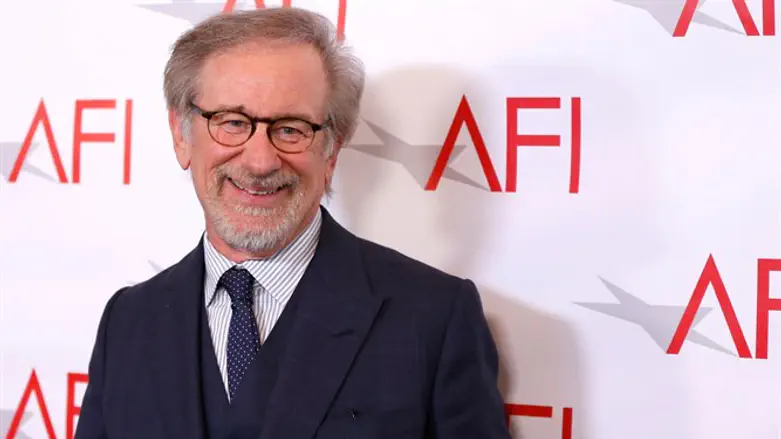
Jewish American filmmaker Steven Spielberg says that, out of all his celebrated films, he is most proud of “Schindler’s List,” the 1993 Oscar winner about a German businessman who saved over 1,000 Jews during the Holocaust.
Spielberg made the comments at a Tribeca Film Festival event on Thursday marking the film’s 25th anniversary that brought him together with actors Liam Neeson, Ben Kingsley and others involved in the movie.
“I have never felt, since ‘Schindler’s List,’ the kind of pride and satisfaction and sense of real, meaningful accomplishment — I haven’t felt that in any film post-‘Schindler’s List,’” Spielberg said, as quoted by JTA.
After a screening of the film, Spielberg said during a Q&A session that it was the first time he had watched the movie with an audience since it debuted in 1993.
The filming, which took place in Poland, took a toll on Spielberg and some of the cast, the director revealed. Neeson, who starred as Oskar Schindler, found the process “dangerous and unforgettable”. Spielberg needed regular calls from his friend, the late actor Robin Williams, to cope with the experience.
“Robin knew what I was going through, and once a week, Robin would call me on schedule and he would do 15 minutes of stand-up on the phone, and I would laugh hysterically, because I had to release so much,” Spielberg recalled.
Two young Israeli actors had “breakdowns” on set after the filming of a scene in which Jewish women thought they were going to be killed in an Auschwitz gas chamber. Spielberg called the day in which actors were asked to strip naked before being marched around the camp set one of the most difficult of his career.
“There was trauma everywhere. You can’t fake that,” Spielberg said.
Spielberg and the crew experienced anti-Semitism firsthand during filming as well. Swastikas were painted near their set at one point, and Kingsley stood up for an Israeli actor in a bar after a German-speaking man approached and asked if he was a Jew.
Spielberg opined that Holocaust education should be more universal in the U.S.
“It’s not a pre-requisite to graduate high school, as it should be,” he said. “It should be part of the social science, social studies curriculum in every public high school in this country.”
In recent years, Spielberg has spoken out against the rise in anti-Semitism. In 2016 at Harvard University’s commencement, the filmmaker said he was “wrong” as a kid to think anti-Semitism “was fading.”
Spielberg’s films have recently been targeted by the Arab world. Lebanon recently banned The Post, his last film, due to the fact that Spielberg was blacklisted by the Arab League's Central Boycott Office after making a $1 million donation to Israel during the 2006 Second Lebanon War.
Lebanon's Interior Ministry later overturned the ban and said it would allow the film to be shown in the country.